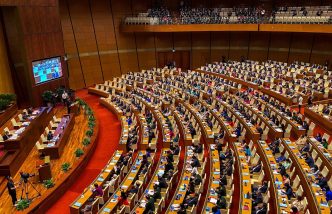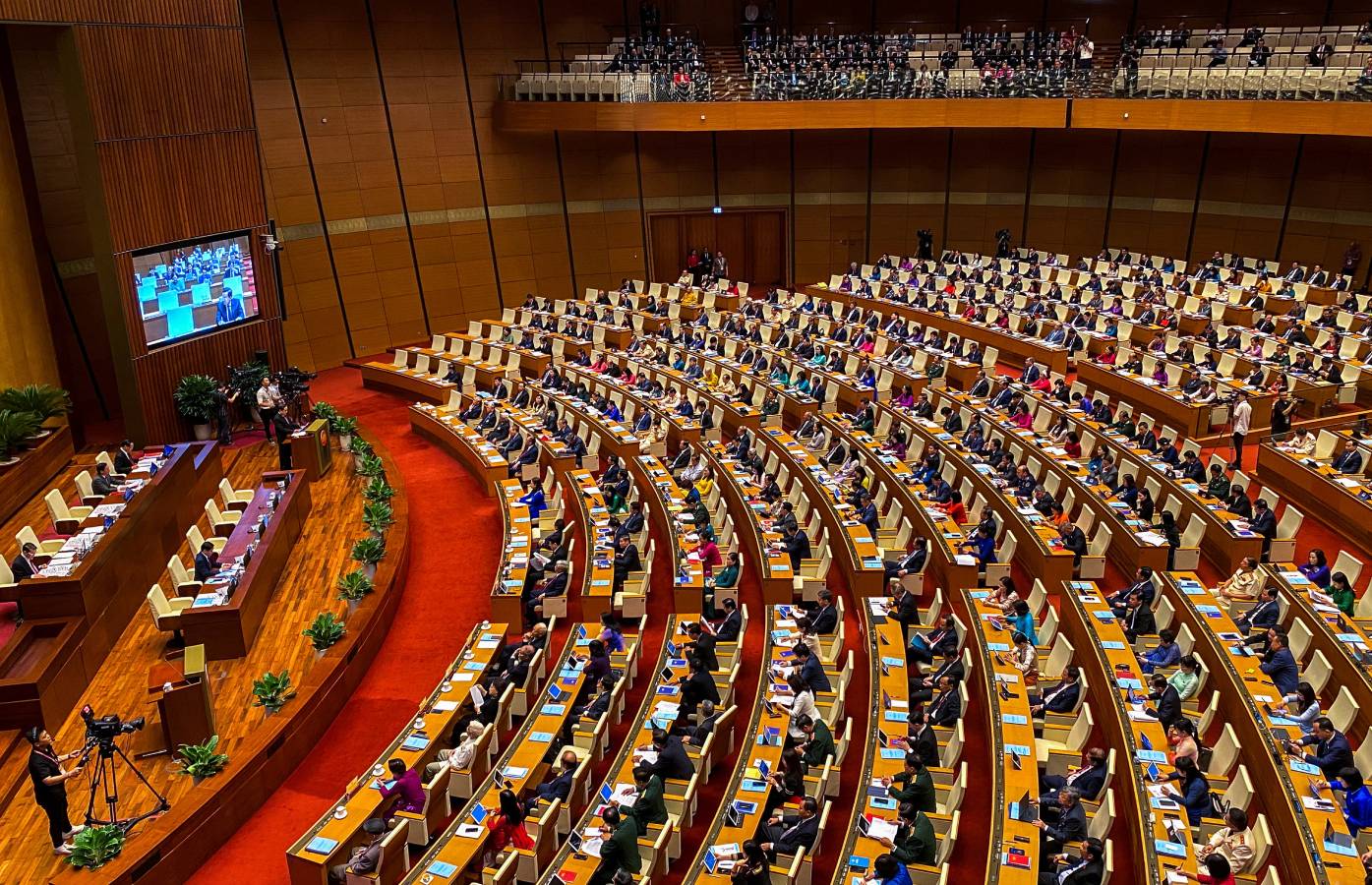In a decisive move to address the pressing need for affordable housing, Vietnam’s National Assembly (NA) on May 29, 2025, passed a resolution introducing pilot mechanisms and policies aimed at accelerating the development of social housing across the country. With near-unanimous support from deputies, the resolution, effective from June 1, marks a significant step toward tackling housing shortages for low-income families, workers, and armed forces personnel. This legislative action comes amid growing urbanization and economic disparities, highlighting the government’s commitment to ensuring housing stability as a cornerstone of social equity.
A Sweeping Mandate for Change
The resolution, passed with 461 out of 463 deputies voting in favor (96.44 percent), introduces a raft of innovative policies designed to streamline the development of social housing. Central to the measure is the establishment of a National Housing Fund, a non-profit, off-budget state financial institution intended to expand access to rental housing. According to Minister of Construction Trần Hồng Minh, who presented the draft on behalf of the Prime Minister during the NA’s 9th session, the fund will operate at both central and local levels, with provincial people’s committees managing regional components. The fund’s primary goal is to maximize land use efficiency and ensure long-term housing stability, addressing a critical issue in current developer projects where rental units are often sold off, leaving tenants without secure options.
Beyond the fund, the resolution includes provisions to simplify bureaucratic hurdles that have long delayed social housing initiatives. Key among these is the allowance for direct appointment of project investors without competitive bidding, provided no public investment is involved. This measure applies specifically to social housing and accommodations for armed forces personnel, aiming to expedite project timelines. Additionally, the resolution streamlines planning, approval, and adjustment processes for such projects, while introducing clearer mechanisms for setting sale and rental prices as well as eligibility criteria for housing support.
Eligibility and Local Flexibility
One of the resolution’s notable features is its focus on defining who qualifies for social housing support. Individuals working far from their place of residence, and who either do not own a home or whose home is distant from their workplace, will be eligible for rental or rent-to-own schemes. The definition of “distant housing” is left to provincial authorities, who are granted discretion to consider local infrastructure, travel times, and geographical factors. This flexibility aims to ensure that housing assistance is practical and tailored to regional realities, a point emphasized by NA deputies during deliberations.
Furthermore, the resolution aligns with recent Politburo conclusions, notably No 127-KL/TW and 137-KL/TW, by incorporating support policies for individuals affected by administrative unit restructuring. Localities will determine eligibility for such support, factoring in commuting challenges and transport infrastructure, thereby ensuring that housing policies remain responsive to the diverse needs of Vietnam’s population.
Implementation and Challenges Ahead
While most provisions of the resolution take effect on June 1, 2025, certain regulations requiring detailed government-issued guidelines will be implemented from July 1. This staggered rollout reflects the complexity of overhauling housing policy on a national scale, as well as the need for coordination between central and local authorities. The urgency of the resolution was underscored by both NA deputies and the Standing Committee, who agreed on the need to remove procedural obstacles and accelerate social housing development immediately upon passage.
However, the ambitious scope of the resolution raises questions about implementation capacity. Vietnam’s social housing sector has historically faced challenges, including limited funding, land scarcity in urban areas, and inconsistent policy enforcement across provinces. The National Housing Fund, while a promising mechanism, will require robust oversight to ensure it operates as a truly non-profit entity and reaches those most in need. Critics have also pointed out that bypassing competitive bidding for investor appointments, while speeding up projects, could risk transparency if not carefully monitored. The government will need to balance efficiency with accountability to prevent potential misuse of these streamlined processes.
A Broader Context of Urbanization and Inequality
The passage of this resolution comes at a critical juncture for Vietnam, a country experiencing rapid urbanization and economic growth. Over the past decade, cities like Hanoi and Ho Chi Minh City have seen skyrocketing property prices, driven by speculative investment and limited supply of affordable housing. According to data from the Ministry of Construction, millions of low-income workers, particularly in industrial zones, struggle to access stable housing, often resorting to cramped, substandard rental accommodations. This housing crisis not only affects individual livelihoods but also poses broader risks to social stability and economic productivity.
The resolution’s focus on rental and rent-to-own schemes is particularly significant given these trends. By prioritizing long-term rental stability over outright ownership, the government aims to address a key gap in the current market, where developer-led projects often prioritize profit over accessibility. The emphasis on housing for armed forces personnel also reflects a recognition of the state’s responsibility to support those who serve in critical roles, often under challenging conditions far from home.
Regional Disparities and Local Empowerment
One of the resolution’s strengths is its delegation of authority to provincial governments, allowing them to adapt housing policies to local contexts. Vietnam’s diverse geography and economic disparities mean that a one-size-fits-all approach to social housing would likely fail. For instance, rural provinces with limited transport infrastructure may define “distant housing” differently from urban centers like Hanoi, where commuting times are shorter but traffic congestion is a daily challenge. This localized approach could help ensure that housing support reaches remote communities as well as urban workers, addressing disparities that have long plagued national policy implementation.
Yet, this delegation also introduces risks of inconsistency. Without clear national guidelines, some provinces may prioritize economic development over housing equity, potentially sidelining vulnerable populations. The government’s forthcoming implementation guidelines, expected by July 1, will be crucial in setting minimum standards and ensuring that local discretion does not undermine the resolution’s overarching goals.
Public Sentiment and Future Outlook
Public reaction to the resolution has been cautiously optimistic. Many workers and low-income families see it as a much-needed intervention, particularly in light of rising living costs. However, there remains skepticism about whether the policies will translate into tangible improvements, given past delays in social housing projects. The success of the National Housing Fund, in particular, will likely serve as a litmus test for the government’s commitment to affordable housing.
As Vietnam moves forward with this landmark resolution, questions linger about its long-term impact on the housing crisis. Will the National Housing Fund deliver on its promise of stable, accessible rental options? Can provincial authorities balance local needs with national priorities? And how will the government ensure transparency in a system that allows for direct investor appointments? These uncertainties underscore the challenges of reforming a sector as complex as social housing, even as they highlight the urgency of the task at hand.
For now, the resolution represents a bold step toward addressing one of Vietnam’s most pressing social issues. As implementation unfolds in the coming months, its success will depend on sustained political will, effective coordination, and a commitment to prioritizing the needs of the country’s most vulnerable citizens.
















